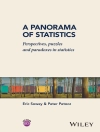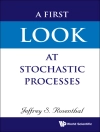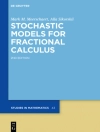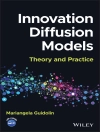Survival analysis deals with the distribution of life times, essentially the times from an initiating event such as birth or the start of a job to some terminal event such as death or pension. This book, originally published in 1980, surveys and analyzes methods that use survival measurements and concepts, and helps readers apply the appropriate method for a given situation. Four broad sections cover introductions to data, univariate survival function, multiple-failure data, and advanced topics.
Table of Content
SURVIVAL MEASUREMENTS AND CONCEPTS.
Survival Data.
Measures of Mortality and Morbidity. Ratios, Proportions, and Means.
Survival Distributions.
MORTALITY EXPERIENCES AND LIFE TABLES.
Life Tables: Fundamentals and Construction.
Complete Mortality Data. Estimation of Survival Function.
Incomplete Mortality Data: Follow-Up Studies.
Fitting Parametric Survival Distributions.
Comparison of Mortality Experiences.
MULTIPLE TYPES OF FAILURE.
Theory of Competing Causes: Probabilistic Approach.
Multiple Decrement Life Tables.
Single Decrement Life Tables Associated with Multiple Decrement Life Tables: Their Interpretation and Meaning.
Estimation and Testing Hypotheses in Competing Risk Analysis.
SOME MORE ADVANCED TOPICS.
Concomitant Variables in Lifetime Distributions Models.
Age of Onset Distributions.
Models of Aging and Chronic Diseases.
Indexes.
About the author
About the authors REGINA C. ELANDT-JOHNSON has been Professor of Biostatistics at the University of North Carolina at Chapel Hill since 1964. She is the author of Probability Models and Statistical Methods in Genetics (Wiley, 1971). Dr. Elandt-Johnson received her Ph.D. in statistics from Poznan Agricultural University in 1957.
NORMAN L. JOHNSON is Alumni Distinguished Professor at the University of North Carolina at Chapel Hill. Dr. Johnson served as Chairman of the Fisher Memorial Lecture Committee, American Statistical Association from 1976 until 1979. He is co-author of Distributions in Statistics (Wiley, 1969-1972); URN Models and their Applications (Wiley, 1977); and Statistics and Experimental Design in Engineering and Physical Sciences (Wiley, 1977). Dr. Johnson received his D.Sc. in statistics from University College, London in 1963.












